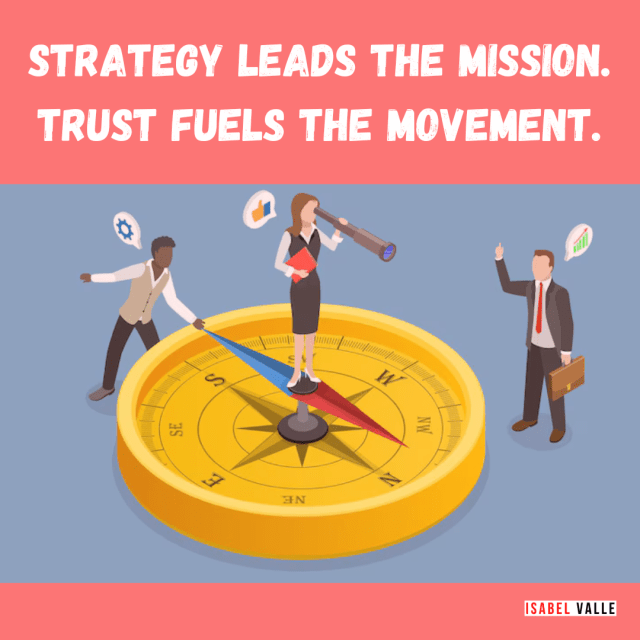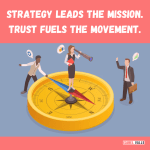
What if the real performance enhancer in your team wasn’t more tools, more meetings, or even more talent—but more trust?
It’s easy to underestimate trust in the business world. After all, we don’t see it on a spreadsheet. It doesn’t come with a quarterly report. But if you’re leading a team, trust is either your biggest multiplier or your biggest blocker—and it’s happening whether you’re building it or breaking it.
Why Trust Is the True Accelerator
In high-performing teams, trust is the foundation. It allows for faster decision-making, freer idea-sharing, and deeper accountability. Without it, teams default to fear, withholding, and political maneuvering.
A powerful study published by Harvard Business Review showed that people working in high-trust companies experience:
-
74% less stress
-
76% more engagement
-
50% higher productivity
-
29% more life satisfaction
Trust doesn’t just make teams more effective—it makes work more human.
From Transactional to Transformational
I remember working with a biotech executive team that had just undergone a complex merger. Two cultures were colliding: one hierarchical and reserved, the other dynamic and fast-paced. Meetings were tense. People were polite—but guarded.
The new CEO realized that technical integration was the easy part. The harder, invisible work was rebuilding trust across lines of difference.
We started small: honest conversations about expectations, intentional one-on-ones, and training leaders to ask better questions—not just give better answers. Slowly, trust started to return. Within months, collaboration increased. Metrics improved. But most importantly, people started saying things like: “It feels safe to speak up again.”
It wasn’t a miracle. It was a strategy. A trust strategy.
What Does Trust Look Like in a Team?
You can feel it in the room. It looks like:
-
A junior team member offering an unpolished idea
-
A peer calling out a risk—without fear of retaliation
-
A leader admitting, “I don’t know,” and asking for input
-
Constructive conflict without resentment
-
Generous listening without power play
Trust isn’t just about being nice. It’s about being safe enough to be real.
How Leaders Break (and Rebuild) Trust
Many leaders break trust without meaning to. Consider:
-
Canceling 1:1s repeatedly
-
Overpromising and underdelivering
-
Reacting emotionally in moments of pressure
-
Withholding difficult feedback
-
Micromanaging instead of coaching
Trust erosion isn’t always dramatic—it’s often slow and cumulative. The good news? You can rebuild it through consistent micro-behaviors:
-
Follow through on what you say.
-
Be fully present in conversations.
-
Name the elephant in the room with humility and courage.
-
Acknowledge mistakes openly.
-
Recognize others consistently.
The ROI of Trust
Let’s get pragmatic. Leaders often ask: “But how do I know if trust is really worth all this effort?”
Here’s how:
-
Retention: Teams with high trust see significantly lower turnover. Gallup reports that managers account for 70% of variance in employee engagement—and trust is central to that.
-
Innovation: When people feel safe, they share half-formed ideas, challenge status quo thinking, and solve problems more creatively.
-
Speed: Trust reduces the “friction tax.” No need for excessive approvals, hidden agendas, or CYA behaviors.
-
Culture: Trust-centered cultures are more resilient, more agile, and more attractive to top talent.
Simply put, trust isn’t soft. It’s smart business.
Your Leadership Role in Building Trust
You can’t demand trust—but you can design for it.
As a leader, your behavior creates the blueprint. Your team watches how you:
-
Respond under pressure
-
Treat people who can’t offer you anything
-
Speak about those who aren’t in the room
-
Own up to your missteps
-
Prioritize people over optics
I often remind clients: your integrity in the invisible moments is what shapes trust most.
Over to you now. Where in your leadership right now are you unintentionally eroding trust—and what small, courageous act could begin to rebuild it?
“Trust is the foundation beneath every brave conversation and bold decision.”


 Available now on Amazon
Available now on Amazon 